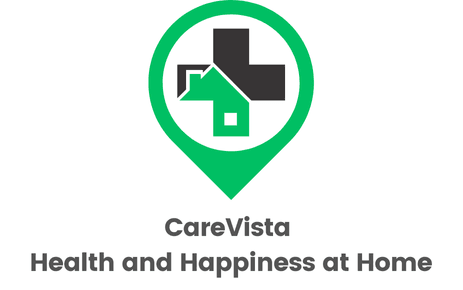With aging loved ones requiring multiple healthcare services, you might find yourself wondering how to manage it all effectively. Care coordination serves as your helping hand in navigating the complex healthcare landscape for seniors. Think of it as having a dedicated conductor who harmonizes all aspects of your loved one’s care – from doctor’s appointments to medication management, ensuring nothing falls through the cracks. As your family’s needs evolve, having a coordinated care approach can make a significant difference in maintaining your senior’s health and independence while giving you peace of mind.
Key Takeaways:
- Effective care coordination streamlines communication between healthcare providers, family members, and seniors, ensuring all parties are aligned on treatment plans and daily care needs.
- Professional care coordination services significantly reduce hospital readmissions and emergency room visits by proactively managing health conditions and maintaining consistent medication schedules.
- Personalized care coordination plans adapt to seniors’ changing needs, combining medical oversight with daily living assistance to help them maintain independence while receiving necessary support.
Carevista 2500 Regency Pkwy Ste 234, Cary, NC 27518, United States
What Is Care Coordination?
Before plunging into the specifics, you should know that care coordination is like having a skilled conductor leading an orchestra of healthcare services. It’s a comprehensive approach where your medical care, social services, and other support systems work together harmoniously to provide you with the best possible outcomes. This organized system ensures that all your healthcare providers are on the same page, working together to meet your unique needs and preferences.
Understanding the Concept
Among the many aspects of senior healthcare, care coordination stands out as your bridge between different healthcare providers and services. When you have multiple healthcare needs, it can feel overwhelming to manage everything on your own. Studies show that seniors with coordinated care experience 25% fewer hospital admissions and report higher satisfaction with their healthcare experience.
Key Components of Care Coordination
For effective care coordination to work in your favor, several important elements need to come together. These include comprehensive assessment of your needs, development of personalized care plans, regular monitoring of your progress, and seamless communication between all your healthcare providers. Research indicates that well-coordinated care can reduce healthcare costs by up to 30% while improving quality of life.
Plus, your care coordination team will handle important tasks like scheduling appointments, managing medication schedules, coordinating transportation, and ensuring smooth transitions between different care settings. They also provide education and support to you and your family members, making sure everyone understands and feels comfortable with the care plan in place.
Why Care Coordination Matters for Seniors
There’s no denying that managing healthcare becomes more complex as you or your loved ones age. Care coordination serves as your healthcare navigator, ensuring all your medical needs are addressed efficiently and effectively. Studies show that seniors with coordinated care plans experience 25% fewer hospital readmissions and report higher satisfaction with their overall healthcare experience.
Enhancing Quality of Life
With proper care coordination, you’ll find daily life becomes significantly more manageable and enjoyable. Your care coordinator works to streamline your medical appointments, arrange transportation, and ensure your home environment supports your health needs. This comprehensive approach means you can focus on enjoying life rather than struggling with healthcare logistics.
Preventing Gaps in Care
An effective care coordination system ensures that nothing falls through the cracks in your healthcare journey. Your care coordinator acts as your personal advocate, maintaining clear communication between your different healthcare providers, tracking your medications, and monitoring your progress across various treatments.
Matters of healthcare can be complex, especially when you’re dealing with multiple conditions or providers. Your care coordinator helps prevent miscommunication, duplicate tests, or conflicting treatments by maintaining detailed records and ensuring all your healthcare providers are on the same page about your care plan. This coordinated approach has been shown to reduce medical errors by up to 30% and improve treatment outcomes for seniors.
Benefits of Care Coordination for Seniors
Not only does care coordination simplify healthcare management, but it also creates a comprehensive support system that helps you or your loved one navigate the complexities of aging. When you choose care coordination services, you’re investing in a structured approach that brings together medical providers, caregivers, and family members to ensure all your healthcare needs are met efficiently and effectively.
Improved Health Outcomes
By having a coordinated care team working together, you can experience up to 23% fewer emergency room visits and a 40% reduction in hospital readmissions. Your care coordinator ensures that your medications are properly managed, appointments are scheduled and attended, and preventive care measures are implemented at the right time. This proactive approach helps maintain your health and independence while reducing the likelihood of medical complications.
Greater Support for Families
Improved communication between healthcare providers and family members means you’ll never feel alone in managing your health journey. Your care coordinator serves as a single point of contact, eliminating the confusion and stress of dealing with multiple healthcare providers independently. This streamlined approach saves your family valuable time and energy while ensuring everyone stays informed about your care plan.
Support extends beyond just medical coordination – your family receives guidance on available community resources, assistance with insurance navigation, and help in making informed decisions about your care. This comprehensive support system allows your loved ones to focus more on spending quality time with you rather than managing complicated healthcare logistics.
How to Find Care Coordination Services Near You
Unlike searching for basic healthcare services, finding quality care coordination requires a more strategic approach. You’ll want to look for services that can effectively manage multiple aspects of your or your loved one’s care, from medical appointments to daily assistance needs. Your search should focus on finding coordinators who understand senior care and can create comprehensive plans that adapt to changing health needs.
Researching Local Agencies
Local senior care agencies often serve as excellent starting points for finding care coordination services. You can begin by checking online directories, your local Area Agency on Aging, or senior resource centers in your community. These organizations typically maintain updated lists of licensed providers and can help you understand which services might best match your specific needs.
Asking for Recommendations
Asking your healthcare providers, particularly your primary care physician, can lead you to reliable care coordination services. Medical professionals often work closely with care coordinators and can recommend services based on their firsthand experience with different providers. You might also find valuable recommendations through senior centers or support groups in your area.
But don’t limit yourself to just professional recommendations. Your friends, family members, or neighbors who have experience with senior care services can offer valuable insights. Their personal experiences can help you understand what to expect, potential challenges, and how different care coordination services operate in real-world situations. Consider reaching out through social media or local community groups to gather more perspectives about available services.
Challenges in Care Coordination
All healthcare providers face significant hurdles when coordinating care for seniors, particularly when multiple medical conditions and providers are involved. According to recent studies, nearly 80% of seniors have at least two chronic conditions that require ongoing management and coordination between different healthcare specialists. Your loved ones’ care coordination becomes more complex when factoring in various appointments, medications, and treatment plans that need to be synchronized effectively.
Overcoming Communication Barriers
To ensure the best possible care for your senior family member, breaking down communication barriers between healthcare providers is important. You might notice that different doctors and specialists sometimes work in isolation, which can lead to conflicting treatments or medication plans. Having a dedicated care coordination team can help bridge these gaps and ensure everyone involved in your loved one’s care stays on the same page.
Accessing Necessary Resources
Behind every successful care plan lies a network of resources that need to be properly identified and utilized. Your family might struggle to find and connect with the right community services, medical equipment providers, or specialized care professionals. Understanding what resources are available in your local area and how to access them can feel overwhelming, especially when you’re already managing daily care responsibilities.
It’s worth noting that resource accessibility varies significantly by location and insurance coverage. You might find that some services require prior authorization, while others have waiting lists or specific eligibility requirements. Working with a professional care coordinator can help you navigate these complexities and ensure your loved one receives the support they need when they need it.
Success Stories: Real-Life Impact of Care Coordination
Your journey through senior care becomes significantly more manageable with effective care coordination. When healthcare providers, family members, and support services work together seamlessly, the results can be truly transformative for both seniors and their loved ones. The positive impact of coordinated care shows through reduced stress, better health outcomes, and improved quality of life for seniors in your community.
Personal Testimonials
On countless occasions, families have shared how care coordination has changed their lives. Take Sarah’s story, for example – when her 75-year-old mother needed complex medical care, the coordination team helped arrange everything from medication management to transportation for medical appointments. This comprehensive support allowed Sarah to maintain her work-life balance while ensuring her mother received the best possible care.
Measurable Outcomes
Care coordination has shown impressive results in improving senior health outcomes. Studies indicate that seniors with coordinated care plans experience up to 30% fewer emergency room visits and a 25% reduction in hospital readmissions. These improvements directly translate to better quality of life and significant cost savings for you and your family.
Indeed, the benefits of care coordination extend beyond just numbers. When you have a dedicated team managing all aspects of care, you’ll notice improved medication adherence, better nutrition, and enhanced overall wellbeing. This comprehensive approach ensures that no aspect of your loved one’s care falls through the cracks, providing peace of mind for everyone involved.
Final Words
Drawing together all aspects of senior care, care coordination becomes your trusted ally in navigating the complex healthcare landscape. When you have a dedicated team coordinating your loved one’s care, you’ll experience fewer worries about managing multiple appointments, medications, or communication between different healthcare providers. This comprehensive approach ensures that your family member receives the highest quality of care while giving you peace of mind.
Your journey in finding the right care solution doesn’t have to be overwhelming. At Carevista, located at 2500 Regency Pkwy Ste 234, Cary, NC 27518, United States, you’ll find a team ready to support your family with personalized care coordination services. By choosing coordinated care, you’re taking a proactive step toward better health outcomes and improved quality of life for your senior loved one, while making the caregiving process more manageable for yourself.
FAQ
Q: What exactly is care coordination and how does it help seniors?
A: Care coordination is a comprehensive service that organizes all aspects of a senior’s healthcare needs. It involves managing medical appointments, coordinating between different healthcare providers, overseeing medication schedules, and ensuring proper communication between family members and medical professionals. This integrated approach helps seniors receive more effective care while reducing stress for both them and their families.
Q: How do I know if my elderly loved one needs care coordination services?
A: Your loved one might benefit from care coordination if they manage multiple health conditions, take several medications, see different specialists, or have recently experienced health setbacks. Warning signs include missed appointments, medication confusion, declining health despite treatment, or difficulty managing daily healthcare tasks. Professional coordinators can step in to organize these aspects effectively.
Q: What specific services are included in local care coordination programs?
A: Local care coordination programs typically include comprehensive health assessment, personalized care planning, medication management oversight, scheduling and attending medical appointments, coordinating with healthcare providers, and regular family updates. They also provide emergency response planning, lifestyle support recommendations, and connections to community resources. These services are customized based on individual needs and circumstances.

